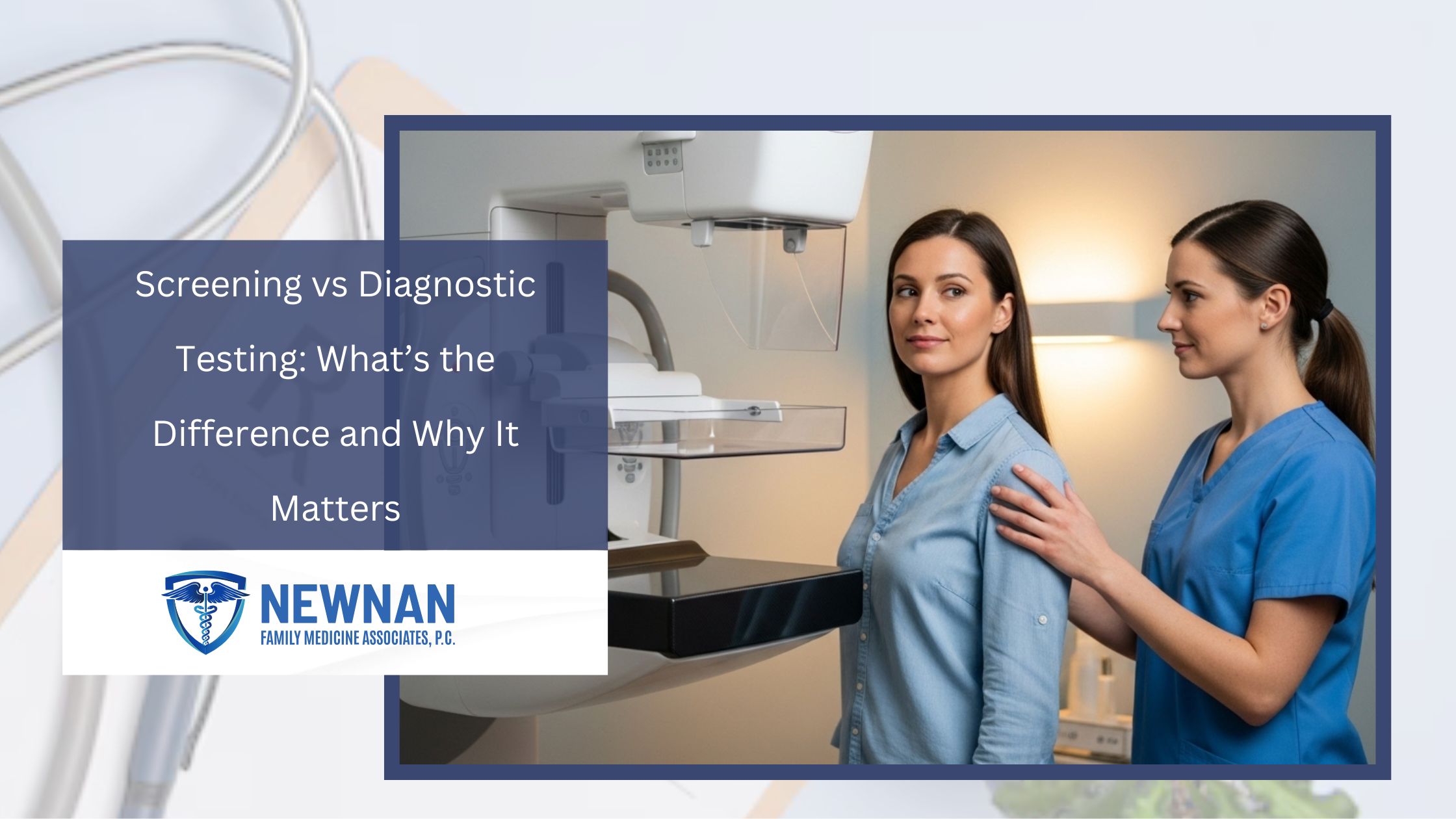


Getting a medical test can feel a bit intimidating, especially if you’re not even feeling unwell. You might wonder, “Why do I need this?” or “Is something wrong?”
The truth is, not all tests are ordered because something’s wrong. In many cases, they’re part of a proactive approach to keeping you healthy. That’s where the distinction between screening tests and diagnostic tests comes in, and it’s one that often confuses.
Knowing the difference helps you better understand your healthcare and make smarter decisions about your health.
A screening test is done before any symptoms show up. It’s like a routine check to make sure everything’s running smoothly under the hood. The goal? To catch potential issues early before they become serious.
Why screening tests matter:
These health checkup tests are part of preventive care. When a condition is spotted early, treatment can start sooner, and the outcomes are often much better.
Common screening examples include:
You don’t need to be sick to get screened. In fact, the whole point is to stay ahead of illness before it has a chance to show up.
A diagnostic test comes into play when something already seems off. Maybe you’re feeling unwell, or maybe a screening test picked up something unusual. Either way, this type of test helps figure out what’s going on.
They’re designed to confirm (or rule out) a specific health issue. Based on the results, your provider can then develop a personalized treatment plan tailored to your specific needs.
In short: when there’s a known concern, diagnostic tests help answer the question, “What is this, and what should we do about it?”
Here’s an easy comparison to help clear things up:
| Category | Screening Test | Diagnostic Test |
|---|---|---|
| Purpose | Detect potential issues early | Confirm or rule out a specific condition |
| When it’s used | No symptoms present | Symptoms or abnormal screening results |
| Who’s it for | Healthy individuals | People with symptoms or known risk factors |
| What it leads to | May prompt further testing | Helps plan treatment or next steps |
Understanding these differences can save you a lot of unnecessary worry and keep you informed during your medical visits.
Your provider might also order a diagnostic test if a screening test shows something that needs a closer look.
The most important thing? Follow your doctor’s guidance. They’ll help you decide what you need and when.
Understanding the difference between screening and diagnostic tests helps in more ways than one:
Health testing isn’t just about reacting to illness, it’s about staying ahead of it. Screening tests help identify potential problems early, even before you notice symptoms. Diagnostic tests help get to the bottom of what’s causing symptoms or concerns. Both are important and knowing the difference gives you the confidence to manage your healthcare wisely.
Not sure if you need a screening or something more specific? That’s exactly what we’re here for. At Newnan Family Medicine, we help you figure out what’s right for your body and your peace of mind. From routine tests to concerns that need a closer look, schedule your visit today, we’ll take it from there.
Have questions? Schedule an appointment today and let’s take the next step toward better health together.